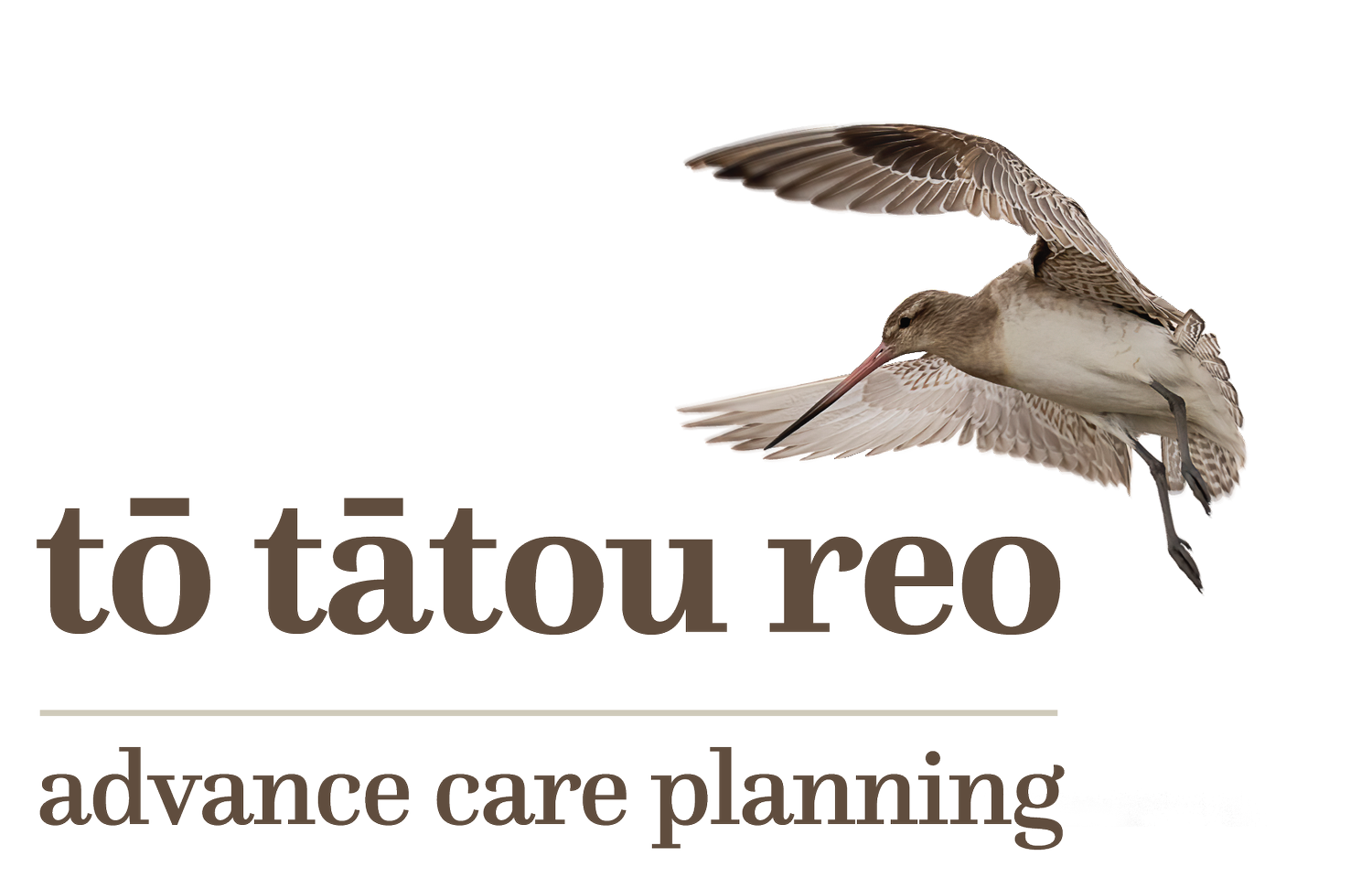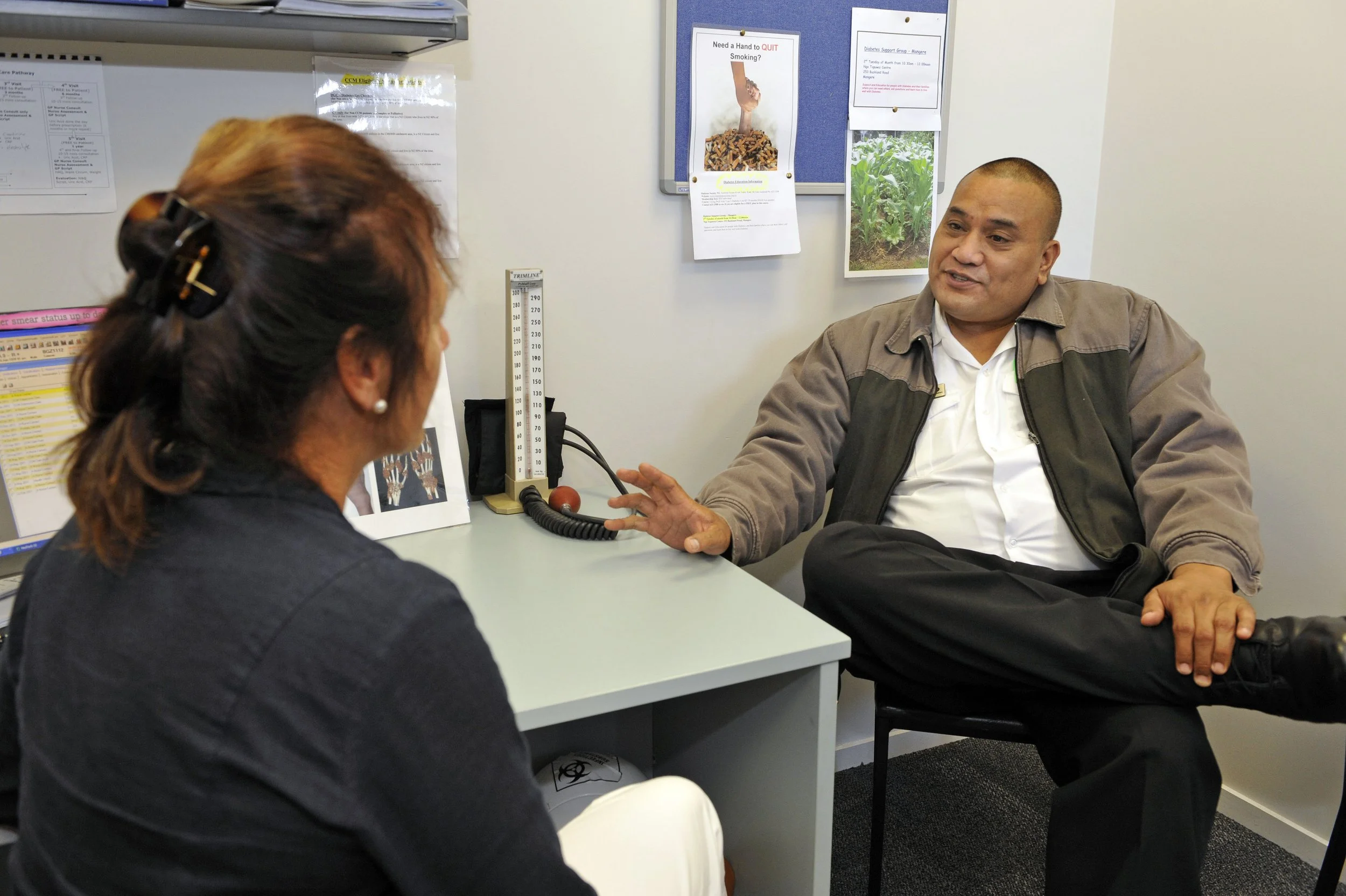
Serious illness conversations
This section is for clinicians to access information about serious illness conversations.
You can find resources, information about implementation, training and events.
If you are a health consumer/patient, please note the language we use here is intended for clinicians and may contain technical and health-related terms you are not familiar with.
About the programme
-
What matters to your seriously ill patient and how to incorporate that into care planning.
The issue: Why incorporating what matters to seriously ill patients is key to high-quality care
Ensuring our patients receive care that is consistent with their goals and values is a critical component of high-quality care.[1]
Generally, clinicians avoid discussing prognosis, what really matters to the patient and end-of-life issues with patients because they feel uncomfortable having these conversations.
Their discomfort comes from:
• a perceived lack of training
• stress
• not enough time to attend to what might come up for the patient
• a fear of upsetting the patient
• a feeling of inadequacy or hopelessness regarding availability of further curative treatment.[2]
Avoiding these conversations or only initiating them late in a person’s disease progression can lead to:
• poorer patient quality of life and anxiety
• family distress
• prolongation of the dying process
• unwanted and unwarranted treatments
• patient mistrust of the health system
• distress and/or
• low value care in which seriously ill patients do not receive the kind of care they desire.[3]
-
We should be supporting patients and their whānau to make better treatment and care choices by including what is important to them, their values, preferences and goals, into the decision-making process.
Early conversations about what matters most to a patient and how we can work together to incorporate their values and goals into the care and treatment offered has been associated with better outcomes for patients and their families.[4]
Best practices in discussing goals of care include:
• preparing for the discussion,
• relating to the patient,
• sharing prognostic information,
• acknowledging emotions and concerns,
• eliciting decision-making preferences,
• understanding fears and goals,
• exploring views on trade-offs and impaired function
• wishes for family involvement and
• encouraging questions.[3,4]
It is in the patient’s best interests to offer prognosis information rather than withhold it to protect the patient from losing hope or being upset. Patients and families want open and honest information and a balance between realistic information and appropriate hope. Evidence suggests that patients can engage in such discussions with minimal stress and maintain a sense of hope even when prognosis is poor.[4]
• Effective communication plays a major role in helping patient and their whānau:
• adapt to illness realities,
• engage in appropriate decision-making and
• maximise their quality of life
• throughout the trajectory of a serious illness.
The Serious Illness Conversation Guide is a tool that will support you to have quality conversations with your patients in and outside of the hospital.
The Serious Illness Conversation Guide developed by Ariadne Labs[5] and adapted for New Zealand is a framework for best communication practices that clinicians are finding useful to structure and support shared goals of care in practice.
-
The Serious Illness Conversation Guide is a tool that will support you to have quality conversations with your patients in and outside of the hospital.
The Serious Illness Conversation Guide is a set of structured questions to help clinicians who do not come from a palliative care background, have conversations with seriously ill people & their whānau about what is most important to them if time were limited and/or their functional abilities where to decline.
When clinicians face stressful situations, like a serious illness conversation, it helps to have language to turn to, to make sure you cover the key questions and address the important issues in an efficient and patient-centred way.
The SICG is made up of patient tested language and explores:
• the person’s understanding of their illness
their preference for information
• the sharing of a prognosis (this may be time-based, functional or uncertain)
• exploration of the person’s:
– goals
– fears and worries
– the abilities they find most important
– the ‘trade offs’ they are willing to make for the possibility of more time
– how much their whānau know• and concludes with shared planning and agreeing next steps which are consistent with the person’s values and goals.
If you are working in an acute or ARC setting, document the key points of your conversations in the discussion section of the shared goals of care form.
-
There is emerging evidence that shows that the Serious Illness Conversation Guide supports more, earlier and more person-centric serious illness conversations and that it is a feasible, acceptable and effective intervention that improves patient experience and outcomes for oncology patients.[6,7]
See the evidence page of Ariadne’s website.
Please send any questions or comments about the Serious Illness Conversation Guide to SICG@tewhatuora.govt.nz.
-
1. BMJ 2015
2. Clayton JM, Hancock KM, Butow PN, et al. 2007. Clinical practice guidelines for communicating prognosis and end-of-life issues with adults in advanced stages of a life-limiting illness, and their caregivers. MJA Supplement 186: 12.
3. Bernacki RE, Block SD. 2014. Communication about serious illness care goals – a review and synthesis of best practices. JAMA Intern Med Doi:10:1001.
4. Wright AA, Mack JW, Kritek PA, et al. 2010. Influence of patients’ preferences and treatment site on cancer patients’ end-of-life care. Cancer 116: 4656-63; Detering KM, Hancock AD, Reade MC, et al. 2010. The impact of advance care planning on end of life care in elderly patients: randomised controlled trial. BMJ 340:c1345; Temel JS, Greeer JA, Muzikansky A, et al. 2010, Early palliative care for patients with metastatic non-small-cell lung cancer. N Eng J Med 363: 733-42.
5. Ariadne Labs is an American non-profit organisation lead by Atul Gawande (author of Being Mortal). https://www.ariadnelabs.org/areas-of-work/serious-illness-care/
6. Paladino J, Bernacki R, Neville BA, et al. 2019. Evaluating an Intervention to Improve Communication Between Oncology Clinicians and Patients With Life-Limiting Cancer: A Cluster Randomized Clinical Trial of the Serious Illness Care Program. JAMA Oncol doi:10.1001/jamaoncol.2019.0292.
7. Bernaki R, Paladino J, Neville BA, et al. 2019. Effect of the Serious Illness Care Program in Outpatient Oncology – a cluster randomized clinical trial. JAMA Intern Med Doi:10.1001.
Aotearoa Serious Illness Conversation Guide
The Aotearoa version of the Serious Illness Conversation Guide has been adapted through a process of co-design. Te Tāhū Hauora Health Quality & Safety Commission worked with consumers, whānau and clinicians from across New Zealand to look at the language used in the American version of the guide and how we might adapt it to feel more comfortable for clinicians to use and for consumers to experience.
You can view this conference poster for all the details of the process followed, the themes that emerged and the changes that were made to the guide for Aotearoa.
Please send any questions or comments about the Serious Illness Conversation Guide to SICGadmin@tewhatuora.govt.nz.
View the Aotearoa New Zealand guide here
This guide forms part of the serious illness conversation programme, supported by Te Whatu Ora districts. The guide is a set of structured questions to help clinicians who do not come from a palliative care background, have conversations with seriously ill people and their whānau about what is most important to them if time were limited and/or their functional abilities were to change. It is often used to support shared goals of care discussions.
Using the guide
For clinicians
Give it a go – before using the guide in practice we would encourage you to:
• familiarise yourself with the guide
• do the online learning (If you do not have a LearnOnline account you will need to create one to access these materials. This is free of charge.)
• read the reference guide for the clinical workforce.
If you feel confident to, then try out using the guide in you conversations with patients and their whānau.
If you feel like you might benefit from some extra training support, there are three-hour Serious Illness Conversation Guide workshops rolling out across Aotearoa.
For team leaders and managers – it needs a system
Implementation of a system change to support the effective use of the guide
The Serious Illness Conversation Guide tool and training is part of a multicomponent programme which should include:
1. Organisational implementation:
systems for identifying patient who would benefit,
policies supporting the use of the Serious Illness Conversation Guide
processes and systems for documenting the conversations and using the information in care planning and delivery.
2. clinician preparation, training and mentoring
3. patient and whānau preparation
See the implementation guide here.
For more information about implementation internationally we would encourage you to join the Community of Practice hosted by Ariadne Labs. They hold regular webinars where they explore the different key areas of successful implementation and system change.
View Ariadne Community of Practice and webinar links
Please send any questions or comments about the Serious Illness Conversation Guide to SICGadmin@tewhatuora.govt.nz.
Get in touch
Please send any questions or comments about the Serious Illness Conversation Guide to SICGadmin@tewhatuora.govt.nz
Related resources
The hui process: A framework to enhance the doctor-patient relationship with Māori
Serious illness conversations: reference guide for health care professionals
Trifold: shared goals of care conversations (for hospital consumers)
Factsheet: capabilities for recognising and responding to acute deterioration
SICG and shared goals of care training video
Page: Aged residential care specific shared goals of care resources
Advance care planning 101 presentation and guidelines for use
The presentation is designed to be delivered to health care staff who don’t have a great deal of knowledge about advance care planning. It can, and should, be adapted for the audience you are presenting to. If all the content is presented as it is, it will take approximately an hour.
There are also guidelines about how to deliver the presentation. Click on files below to download.
Advance care planning 101 presentation | Guidelines for using the advance care planning 101 presentation


